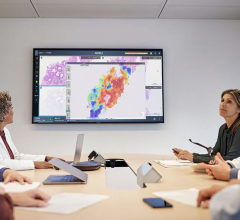July 30, 2012 — Emerge Clinical Solutions, a creator of clinical decision support software, announced nuclear myocardial perfusion imaging (MPI) appropriateness update 3.1 that allows for diagnosis of both symptomatic and asymptomatic conditions.
In medicine, patients are simpler to diagnose when they show clear symptoms or signs of disease or injury. However, often an illness is asymptomatic, which means it is present but does not demonstrate obvious symptoms. Asymptomatic patients can be a challenge since asymptomatic illnesses are particularly difficult to discover and diagnose, especially in early stages.
Emerge’s real-time clinical decision solution helps doctors increase diagnosis efficiency and accuracy by filtering comprehensive patient data and history through the company’s rules engine and patented algorithms. The software has been proven to increase identification of certain cardiac diseases by as much as 300 percent. The Emerge rules engine performs more than 8,000 calculations in seconds to help doctors elect the most appropriate testing and procedures and choose a care path.
“Asymptomatic conditions are difficult to uncover, but they are no less threatening to a patient’s health. Emerge’s agnostic software can process data exponentially faster than any human brain, so it helps doctors find the right solution quickly. Time is of the essence when it comes to cardiology, and we help doctors decide the best care path without losing time on unnecessary testing,” said Emerge CEO Scott Finfer.
Cardiologists are often overwhelmed with the volume of information and data to consider when evaluating patients. Emerge’s software simplifies the decision process and merges seamlessly with any electronic medical record (EMR), integrating in real-time. Its algorithms utilize appropriate use criteria and guidelines from the American College of Cardiology (ACC), American Health Association (AHA) and Heart Rhythm Society (HRS). The software exceeds stage 1 meaningful use requirements, as well as the proposed requirements of stages 2 and 3.
For more information: www.emergecds.com


 July 30, 2024
July 30, 2024 








